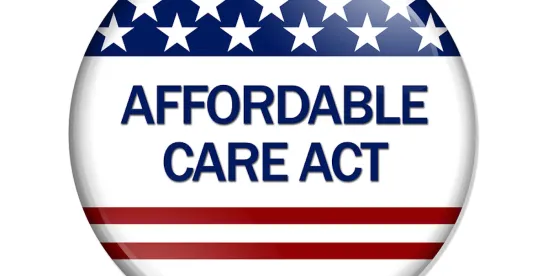In its first major attempt to reform the Affordability Care Act (“ACA”), the Trump Administration issued a proposed rule on March 10, 2025 (“Proposed Rule”) amending regulations governing insurance coverages subject to the ACA.[1] Public comments on the Proposed Rule will be accepted for consideration until April 11, 2025.
In conjunction with the Proposed Rule, the Centers for Medicare & Medicaid Services (“CMS”) issued a statement explaining that the proposed regulations include “critical and necessary steps to protect people from being enrolled in Marketplace coverage without their knowledge or consent, promote stable and affordable health insurance markets, and ensure taxpayer dollars fund financial assistance only for the people the ACA set out to support.” To support its position, CMS cited a report from the Paragon Health Institute suggesting “4 to 5 million people were improperly enrolled in subsidized ACA coverage in 2024, costing federal taxpayers up to $20 billion.” The impact analysis that accompanies the Proposed Rule shows that the Proposed Rule will reduce enrollment in the ACA plans, reduce the number of people who access premium tax credits and cost-sharing reductions that make coverage more affordable, and limit benefits available to individuals including, specifically, coverage for services related to a sex-trait modification as an essential health benefit.
As summarized below, the Proposed Rule contains a variety of key changes to the regulations governing health insurance subject to the ACA that will impact those seeking to obtain health coverage through state and federal insurance marketplaces (the “Marketplace”). In this regard, the Proposed Rule does the following
- Allows insurers to deny coverage to individuals who have past-due premium from prior coverage, allowing insurers to consider past due premium amounts as owed as the initial premium for new coverage.
- Excludes persons who are Deferred Action for Childhood Arrivals (“DACA”) from eligibility to enroll in a health insurance plans offered on the Marketplace or access premium tax credits and cost-sharing reductions.
- Requires CMS to apply a “preponderance of the evidence” standard before terminating an agent for cause as to their agreement with CMS to solicit and sell Marketplace coverage.
- Eliminates the ability of an individual to certify to their income when applying for premium tax credits and cost-sharing reductions, instead requiring income determinations be reconciled with tax filing or other information potentially creating coverage delays and administrative barriers. In addition, if an individual does not file a Federal income tax return for two years, the individual will not be eligible for premium tax credits and cost-sharing reductions.
- Institutes income eligibility verifications for premium tax credits and cost-sharing reductions and charges people auto-reenrolled into zero-premium plans a small monthly payment until they confirm their eligibility information.
- Adjusts the automatic enrollment hierarchy for individuals.
- Shortens the annual open enrollment period from the current period, November 15 to January 15, reducing it by one month, to November 15 to December 15.
- Removes the monthly special enrollment period (“SEP”) for qualified individuals who become eligible for premium tax credits and cost-sharing reductions because their projected household income falls to or below 150% of the federal poverty level, which means that these individuals will have to wait before they can access premium tax credits and cost sharing reductions.
- Changes de minimis thresholds for the actuarial value for plans subject to essential health benefits (“EHB”) requirements and for income-based cost-sharing reduction plan variations.
- Updates the annual premium adjustment percentage methodology to establish a premium growth measure that according to the Proposed Rule reflects premium growth in all affected markets, increasing the cost of coverage.
- Prohibiting insurance companies subject to ACA requirements from providing coverage for services related to a sex-trait modification as an essential health benefit.
These changes will not take effect immediately, as the Proposed Rule now faces a public comment period that stays open until April 11, 2025. After receipt of public comments, CMS may revise the Proposed Rule before issuing it in final form. If instituted, these changes could have significant impacts on the approximately 24 million Americans who enrolled in coverage in the ACA Marketplace for 2025 and who plan to enroll in coming years. Most importantly, consumers will have less time to enroll and need to present additional documentation to demonstrate eligibility for premium tax credits and cost-sharing reductions creating administrative barriers to enrolling in coverage. In addition, automatically re-enrolled consumers will be charged a small monthly fee until they confirm their eligibility information. Significantly, individuals who are brought to the country from abroad as children and are DACA status will be prohibited in enrolling in Marketplace coverage. And finally, the Proposed Rule prohibit insurers from covering gender-affirming care as essential health benefits.
[1] Patient Protection and Affordable Care Act; Marketplace Integrity and Affordability, CMS-9884-P, 90 Fed. Reg. 12942 et seq. (the “Proposed Rule”).





 />i
/>i

